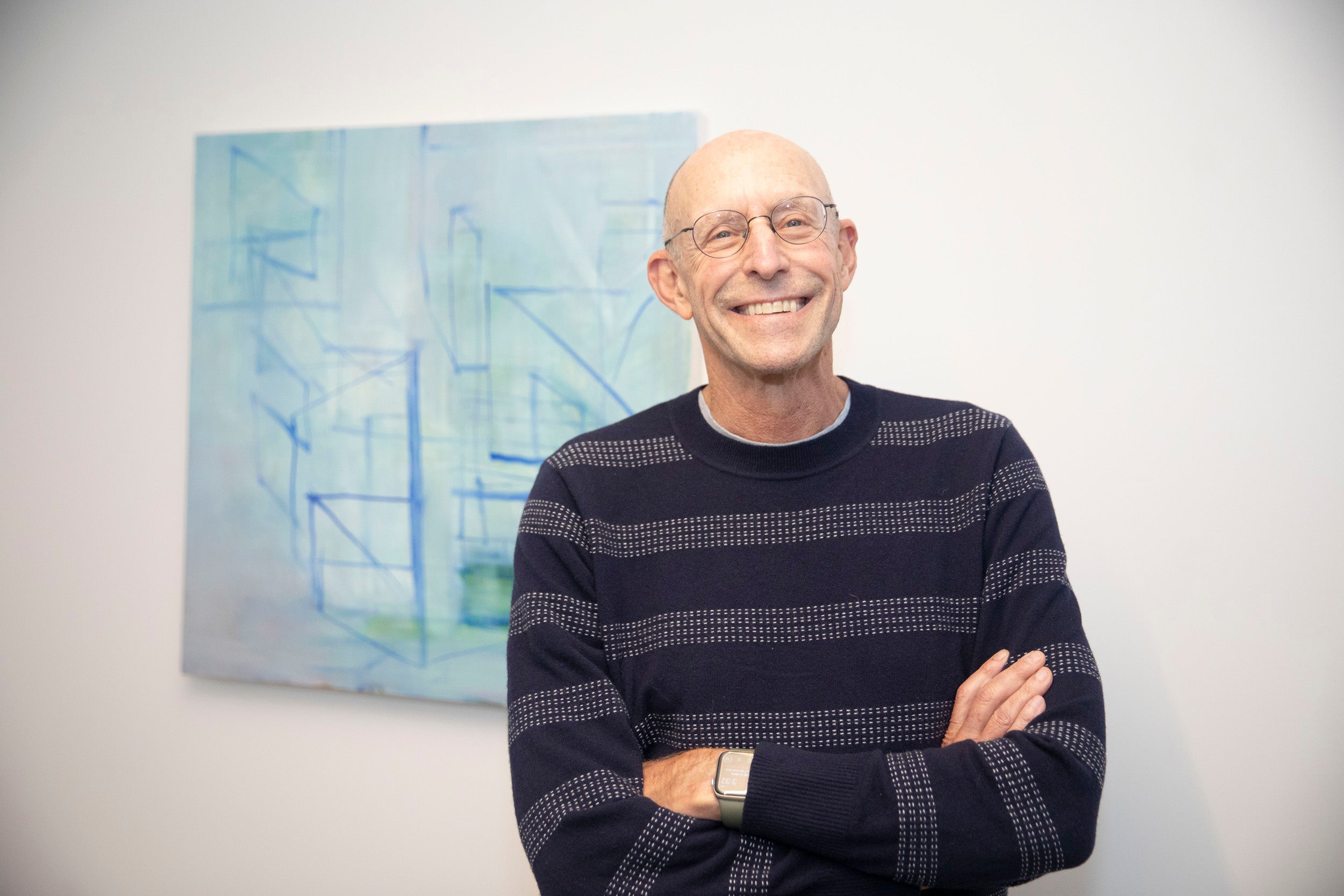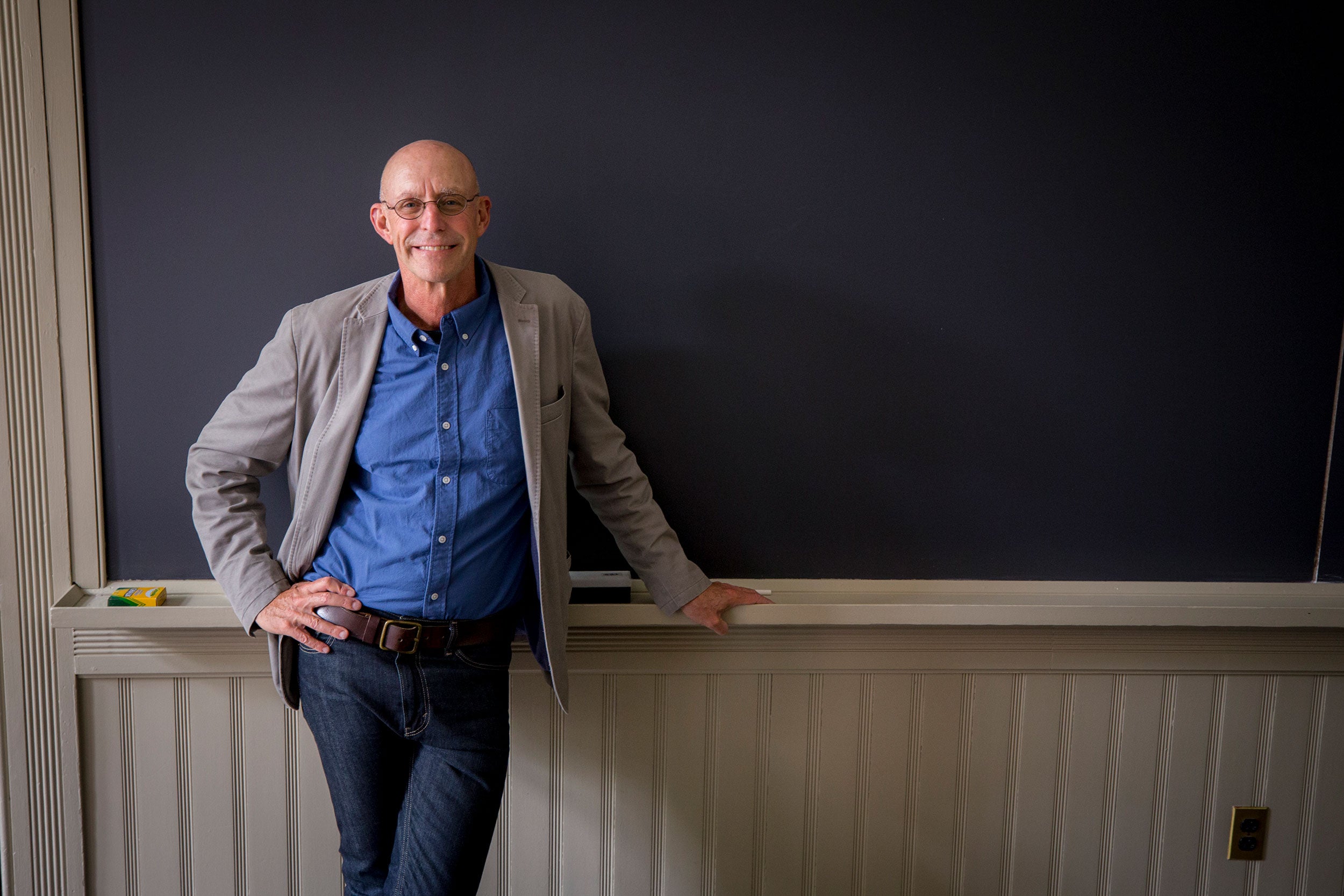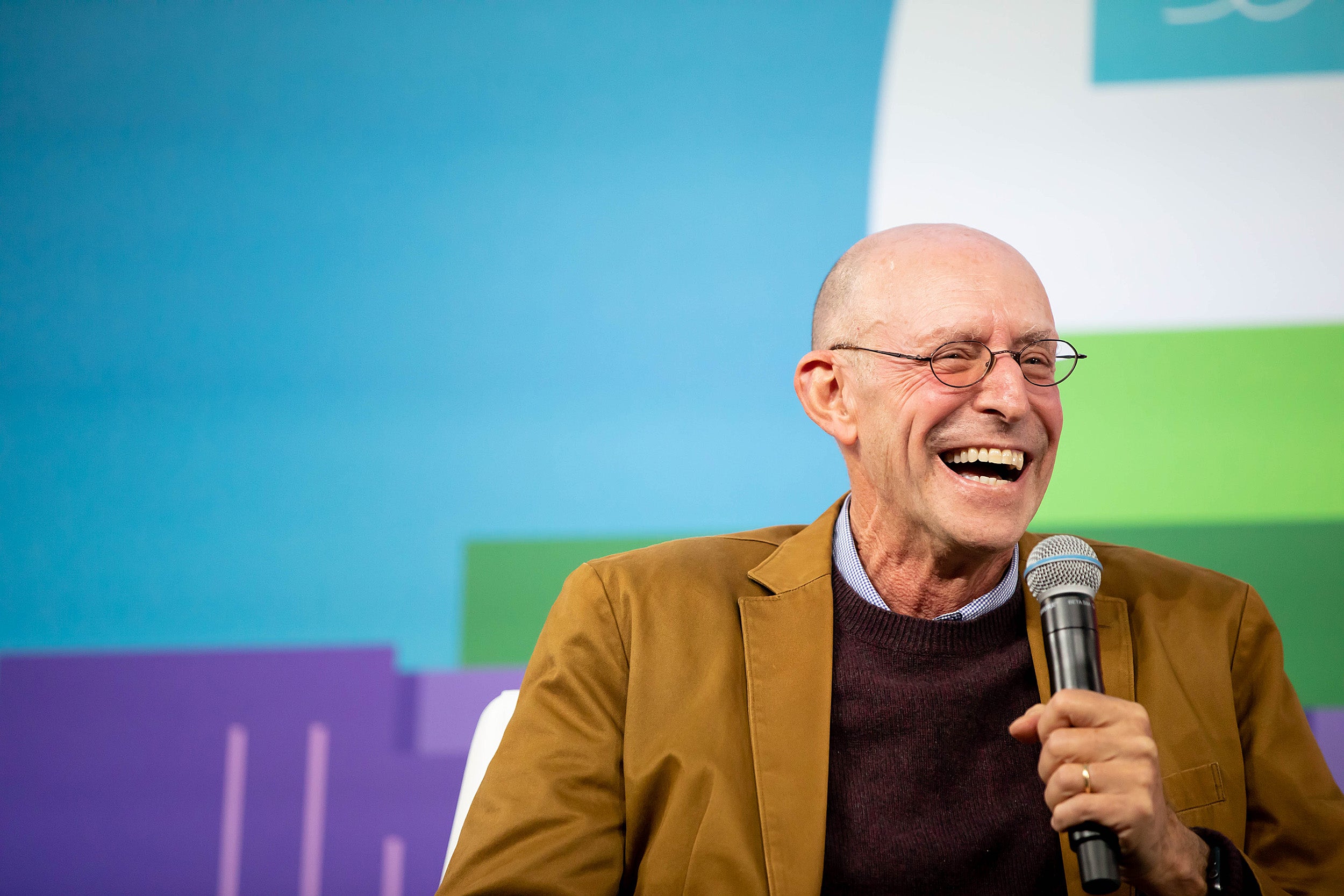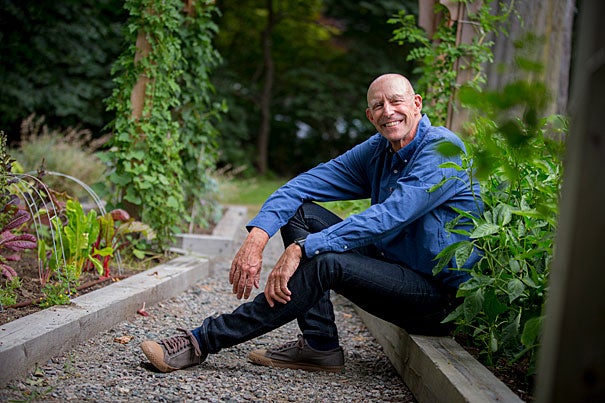
Michael Pollan believes human behavior can be changed if you give people hope. “If there is anything you can point them to, you’re doing them a service; you’re doing the issue a service,” he said.
Kris Snibbe/Harvard Staff Photographer
Chance of sun in Michael Pollan’s climate forecast
Journalist and professor says prospects aren’t great, but people have shown they can change attitudes and habits, sometimes quickly
The climate forecast, according to Michael Pollan, is “cloudy, with a 60 percent chance of apocalypse.”
That may seem pessimistic as world leaders converge on Scotland in an effort to meet climate change’s challenge, but Pollan, the best-selling author of books about food and drugs and how humans and society intersect with nature to get them, pointed out that his prediction leaves a significant chance that humanity will get its climate act together. Not better than even, but not nothing either.
“That is high, but 40 percent chance of not, I think that’s pretty good,” Pollan told Terry Tempest Williams, writer-in-residence at Harvard Divinity School, during an online conversation Monday, “The Climate of Consciousness.”
Pollan, professor of the practice of nonfiction at Harvard and Lewis K. Chan Arts Lecturer, said although he approaches his subjects with a journalist’s skepticism and has written about some of the more unsavory aspects of our industrial food system, he tries to leave readers with a note of hope. That’s in part because he is optimistic by nature, but it’s also because he recognizes that things can change, sometimes rapidly.
He recounted writing an article for The New York Times, which became a chapter in 2006’s “The Omnivore’s Dilemma: A Natural History of Four Meals,” that followed a single steer he had purchased through the meat processing system. The article, he said, was “very dark,” and delved into feedlots, pollution, the fossil fuels essential in producing the corn they eat, and other subjects, but at the end he devoted a few paragraphs to a then-little known alternative: grass-fed beef. Later that week the market for grass-fed beef exploded, he said.
“I said contrast that food chain with this one, where instead of oil feeding corn-feeding cattle, you have sunlight feeding grass, feeding cattle feeding us,” Pollan said, adding that he learned a lesson from the subsequent market expansion. “It taught me that people are looking to do something after they get their dark weather report. If there is anything you can point them to, you’re doing them a service; you’re doing the issue a service. So, I think people are hungry for hope.”
“We’re very fatalistic. People assume things are the way they have to be and they’re not.”
Michael Pollan
Pollan and Williams spoke Monday as part of a lecture series sponsored by the Divinity School, the Center for the Study of World Religions, Religion and Public Life, and the Planetary Health Alliance called, “Weather Reports: The Climate of Now.” Charles Stang, director of the Center for the Study of World Religions, was the event’s respondent.
Pollan said even something as massive and apparently immovable as our food system was the result of choices made along the way that came to be institutionalized. Understanding that means that we can also make new decisions, he said, about food, climate change, and other seemingly intractable problems.
“Nothing is inevitable; everything’s evitable; and that’s really important. That’s one of the reasons we study history, and we see that very specific decisions resulted in specific outcomes. It didn’t just happen,” Pollan said. “We’re very fatalistic. People assume things are the way they have to be and they’re not.”
Over the decades of his work, Pollan has learned about the huge impact that human agriculture has on the natural world, including climate change. In fact, he was astonished that when Al Gore’s “An Inconvenient Truth” came out, it didn’t mention agriculture.
People understand that trees store carbon in their wood, but Pollan said it is less well known that other plants do as well, in part by pushing carbohydrates into roots and the soil to feed symbiotic fungi and bacteria. Agriculture’s regular stirring of the soil releases enormous amounts of stored carbon: As much as a third of the carbon in the atmosphere today was in the soil a century ago, Pollan said. The good news, he said, is that if carbon is being taken out, farming practices can be altered to make agriculture part of the solution.
With his last two books focused on psychedelics and other mind-altering substances provided by plants, the conversation steered to their effect on an individual’s view toward nature. Pollan said the compounds seem to drive users toward a feeling of oneness with nature, offering a dissolution of the ego that, if widespread, might shift humanity’s approach to the natural world away from one of ownership, domination, and utility. But he also pointed out that the science about these substances is still preliminary: It’s likely that those who volunteer to take psychedelics experimentally are a self-selected population and may not reflect humanity in general.
“This goes back to the idea: ‘Can you prescribe a drug for a whole culture?’ and I have my doubts that we can do it,” Pollan said. “A lot more research is needed.”







